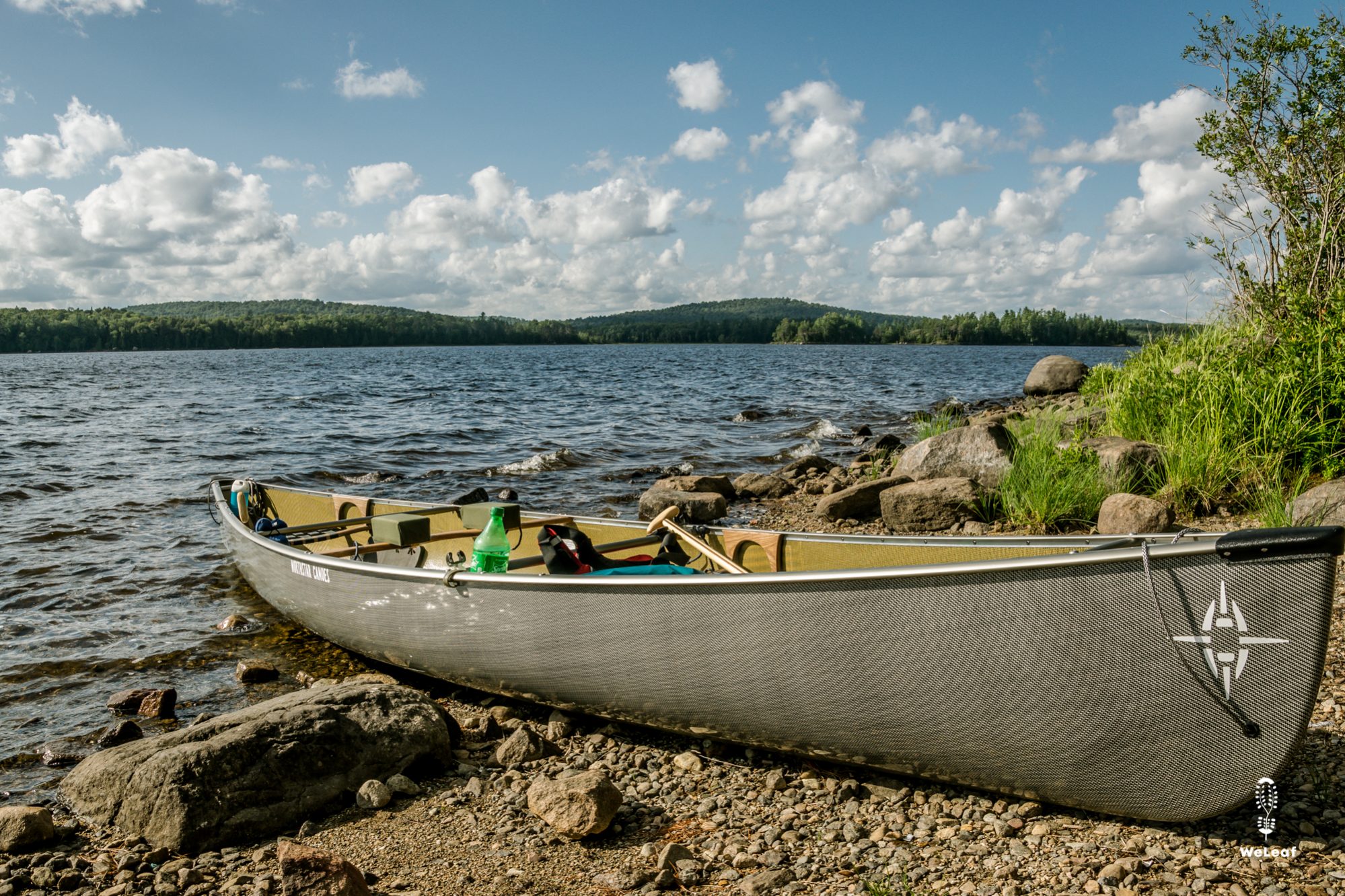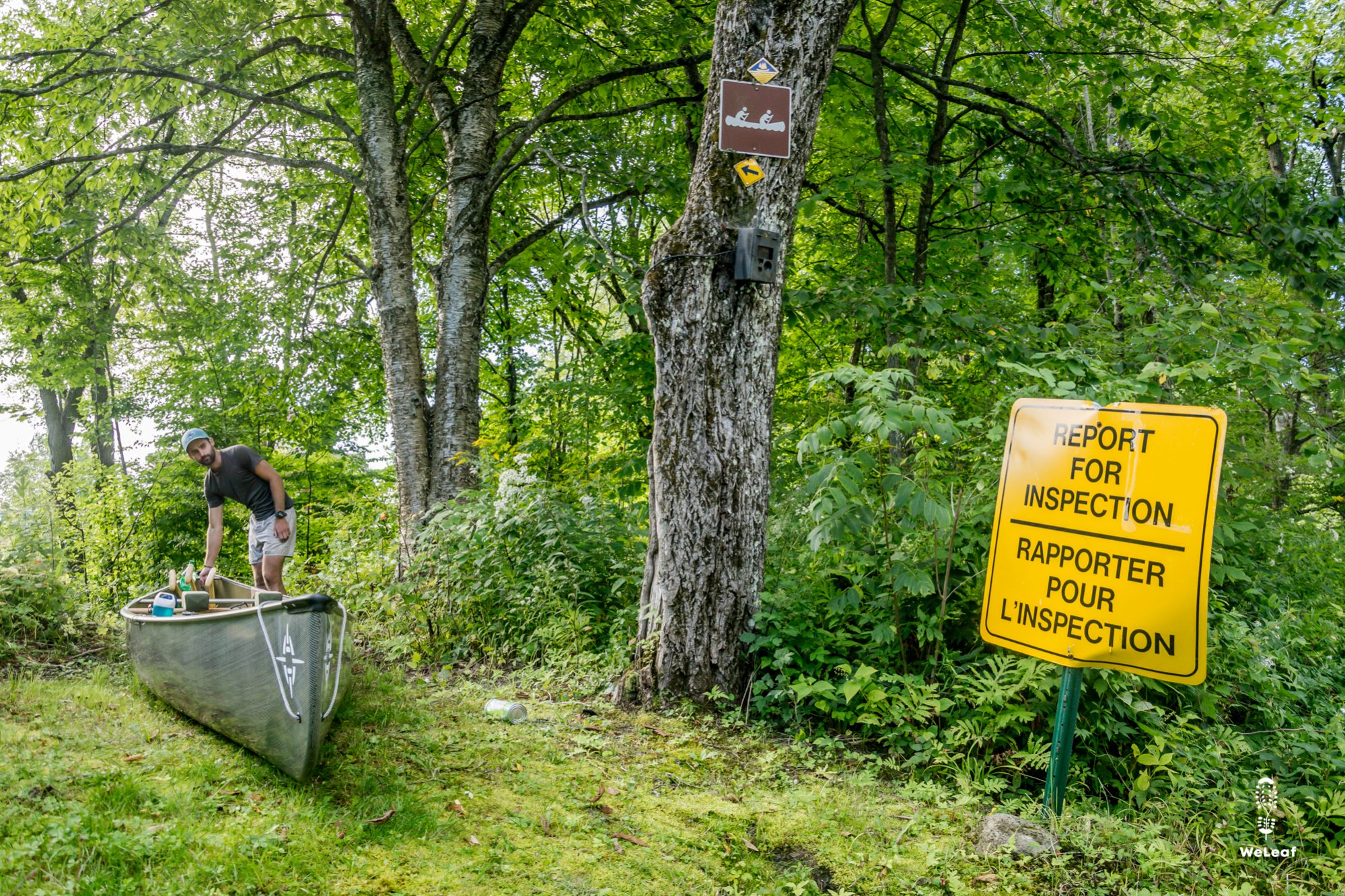
Passport issues

Packing list for a canoe trip
November 16, 2019
The canoe parcours
November 29, 2019
Sunday September 1st - Border Canada and USA
Normally the river brings us to the bridge, the dividing line between America and Canada. It needs no explanation why we arrive on foot at the same bridge. The officer kindly greets us "they usually arrive over the water, you are the first one I see this year". We chat and tell the interested border officer about our trip. We don't have to get an exit stamp here. “You walk across the bridge to Canada, get the stamp and walk back. You can then take your canoe to the water using this trail and enter Canada” he says, pointing to a route behind the building. "Just for the sake of formality, I take a look at your passport" he says apologetically, as if he were a burden to us. His colleague gets our passports through the computer and suddenly gets serious. She calls her colleague. "You've expired your visa," he says, quickly scrolling through our document. We look at the officer surprised. "We have 6 months," we say in unison, "and we have two months left," Olivier continues. After some talking back and forth, we found the snag. The Texan customs officials put the wrong stamp on our passport 4 months ago when we arrived on our bicycles from Mexico. Probably they were so overwhelmed by our arrival on the bike, European passports and especially too busy photographing us, that they gave a stamp of 3 months instead of 6 months. The stamp says "VW" for "Visa Waver" and that should mean that you get 3 months. In our passport, however, we have a 6 month B2 visa, obtained at the American embassy in Brussels. How should we know what that W in our passport means? And they should have written an "exit date" at the stamp. We remember how the Texans didn't really know what to do, but it all seemed to go well. To make a long story short, the agents here understand the situation but cannot do much about it now. We will have to resolve this at customs when we enter America again in two days.
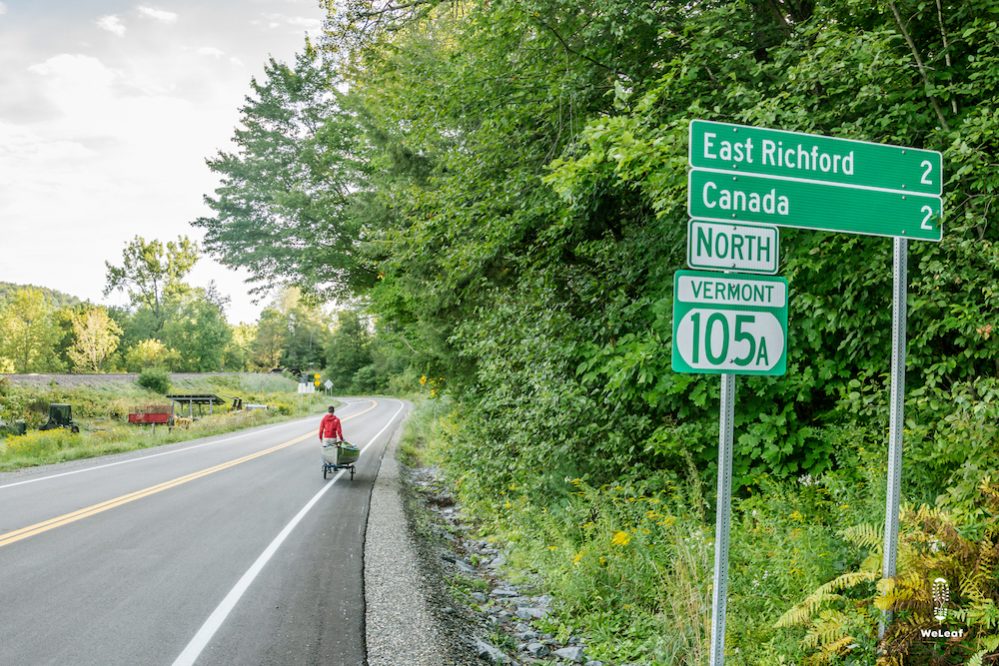
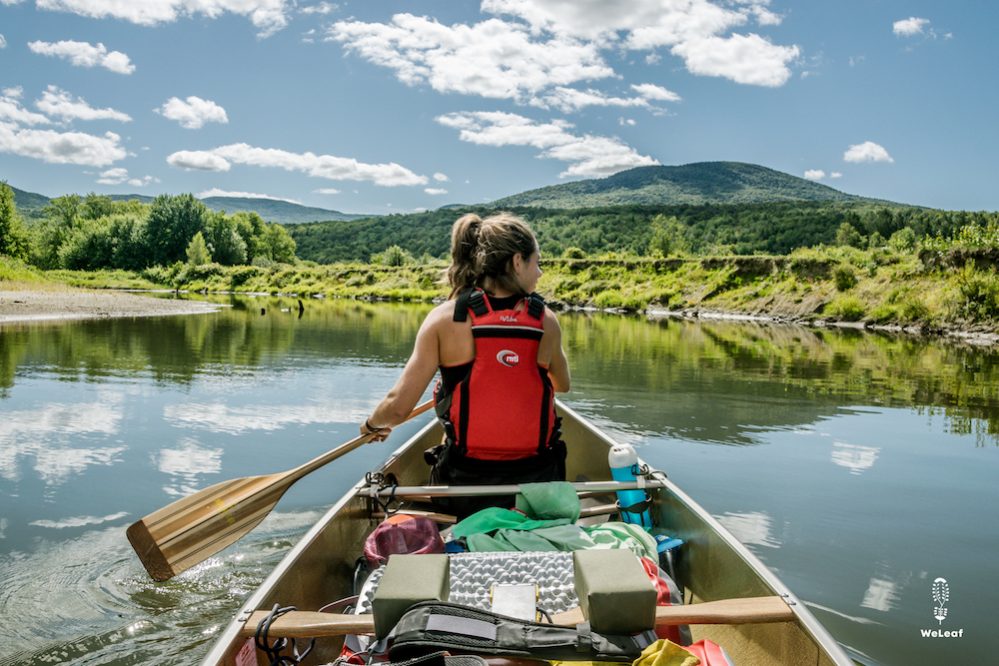
We walk over the bridge to the Canadian border where the young officer Max looks at us strangely. He is also particularly interested in our story and even offers us a place to stay in his house. Unfortunately we have to reject that because we are on our way to a warmshower host. When we are back on the American side, we step into the canoe and finally enter Canada, continuing upstream. The first meters are slow with lots of stones, strong currents and low tide, but not much later we suddenly see a family canoeing on the water, followed by a new group of canoes every five minutes and it quickly rises to a procession of peddler. It is a beautiful day and apparently we are on a popular river. "That means there must be enough water for the coming kilometers," Zoë says happily.
It is wonderful to paddle over a meandering river and we are greeted by 200 passing canoes in the opposite direction. Some ask if we have seen their friends on the river before, hard to say. Enthusiastically we say "Hello" and get a surprised "Bonjour" back. We are in Quebec and it’a all French here. After lunch we have five kilometers left to our warmshower host, where the paddling pleasure ends. Even people in rental canoes, with a lot less weight, drag the canoe through the sand and over the stones. They don't worry about the bottom of their canoe, but we have to make it all the way to Maine with our canoe so always have to get out and walk. Of course our host lives at the top of a hill so we are put to work to get to Jacques. Once at his house we can enjoy a rest day, practice French and eat croissants. Jacques is mayor of the village and we get many new insights into Canada and in particular Quebec, the province. In Quebec they do their best to maintain French tradition and language with an obligation to speak French in schools, to show French films in cinemas and French music on the radio. The Quebecois are proud of their language and especially happy not to be American. Real Frenchmen who love their cheese, sausage and bread. And to be honest, we enjoy it.
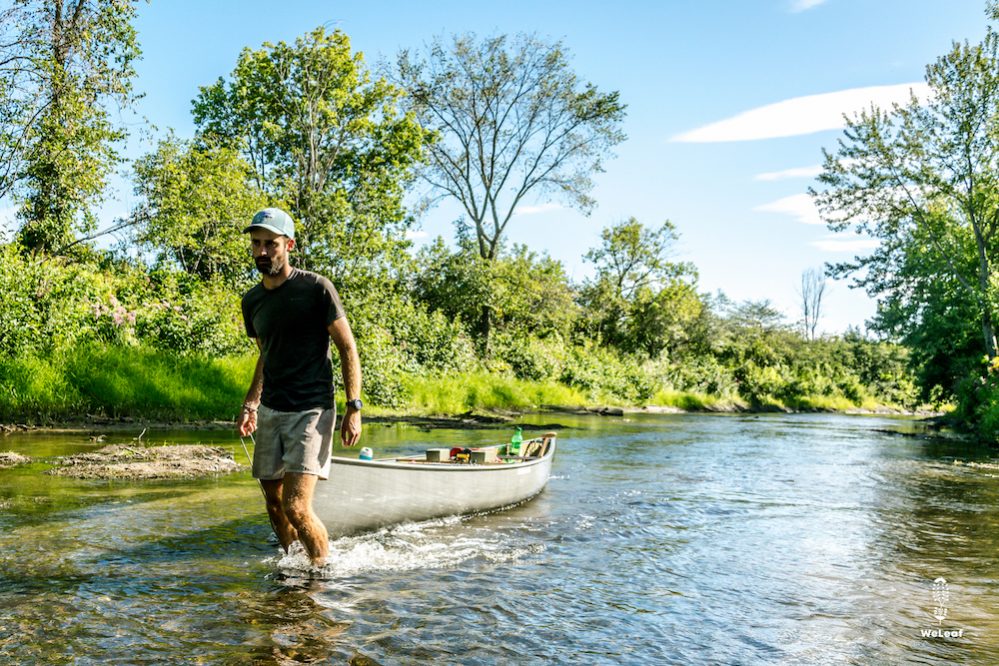
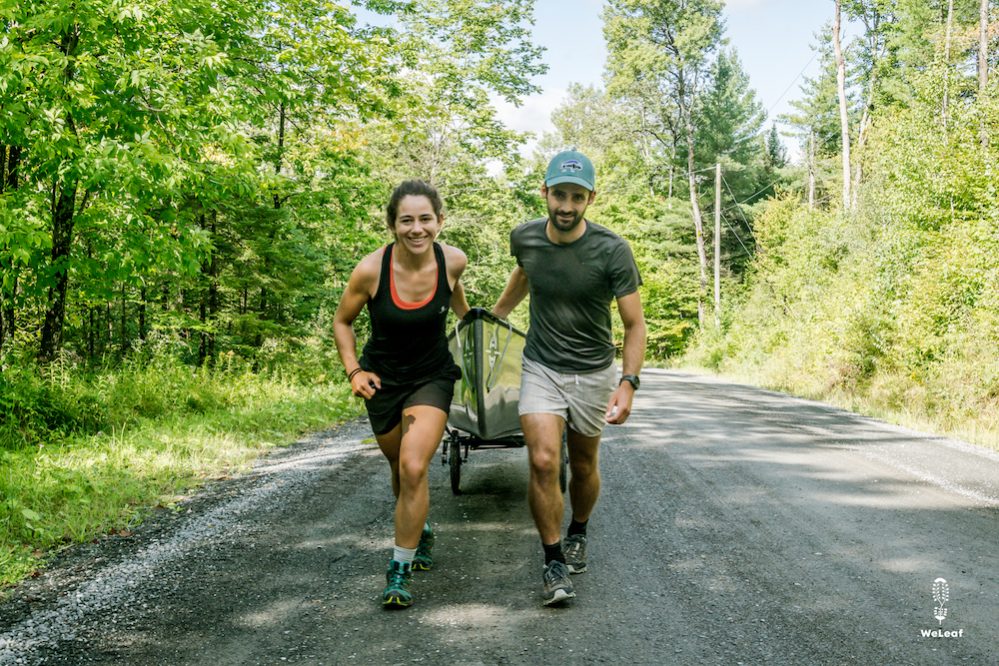
It is raining cats and dogs on our rest day and that is good news for us. When we leave Mansonville, the dry stream suddenly has a lot of water. After a flooded stream we have to tackle the "grand portage", 10 kilometers of portaging with the canoe. We look at it as the "petite portage" after all the previous portaging kilometers. After this, only a large lake lays between us and the United States to cross the border again. This time the border post is unmanned and only for water vehicles! The nearest border for cars is 20 minutes away. We can register on an Ipad. We enter our data and have to wait a while. Then we get to see a customs officer on our screen via a video call. We know that we have to explain something and it is immediately clear when the officer greets us a brief “Hello, I have to check something". Five minutes later he is back online.
"We are coming your way, stay where you are".
When the officer arrives, there is no room for discussion.
"You have overstayed your visa, you can choose to go back to Canada or to take a flight home".
They keep asking questions and we have no room to explain our part of the story.
Zoë tries to stay calm and says "may we explain it briefly?" She tells the story and the agents calm down.
“Okey, I'm going to be very kind to you. You go with us to the migration office and you buy yourself a new visa, the one for three months. This is a very special offer I do for you and I want you to remember how kind Americans are”. says the older, bald officer. He stays with the canoe, while the younger, friendlier officer takes us to the official border.
Zoë almost explodes with disgust but keeps calm. If we are put in the back of the arrest car, like one with bars and where the door cannot be opened from the inside, the friendlier agent says "you are not arrested but we don't have another car to transfer your."
Once on the road, we explain to the officer that we should not have to pay and that we should simply have a different stamp. He agrees with us.
"What a jerk that other agent was," says Zoë.
"Leave him, he just loves power," says Olivier in a controlled manner.
“Indeed,” Zoë thinks, it is a good thing that we keep each other in balance. Without Olivier, Zoë would probably have gone directly into the attack. A few hours later everything is arranged, we canceled our 3 month visa at no extra cost and restored our six month visa.
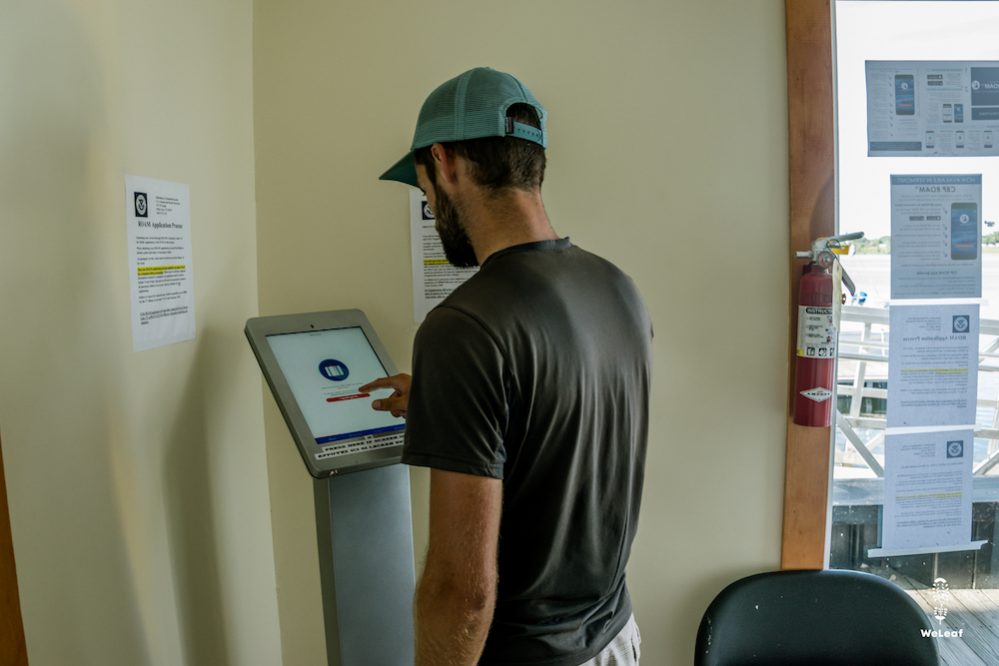
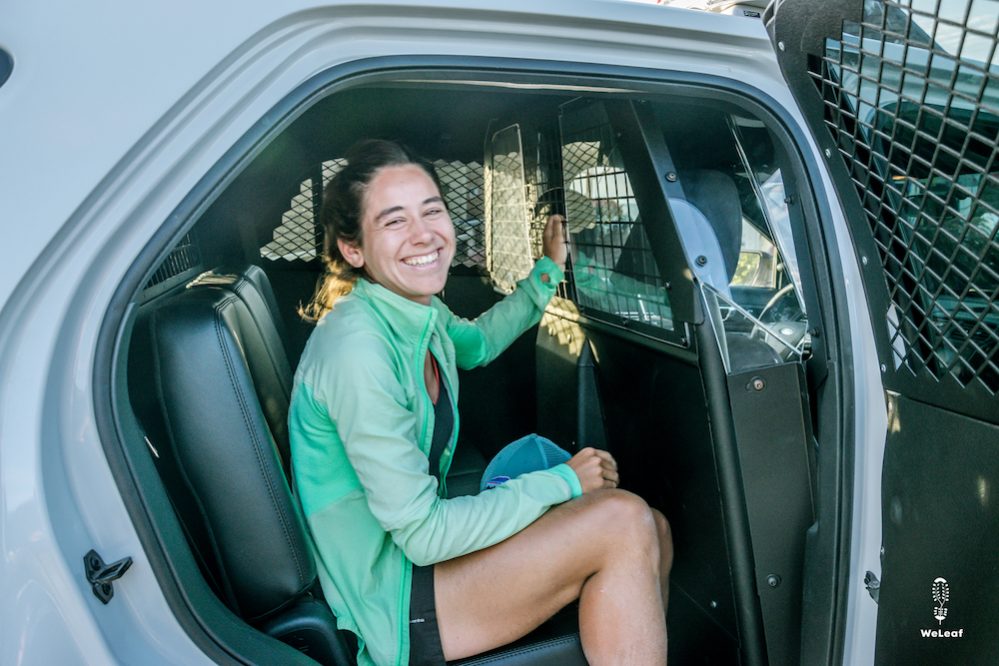
When we finally get back to the canoe, it is already dusk. We still have to do our shopping and won't make it to our planned location. A problem, because we are too far away from the first campsite and we are close a large village. People in America have helped us from all sides, but it is a bit different when two people knock at your door in the dark asking you to put a tent in the yard. It makes us a lot less comfortable. We remain positive and paddle in good hope. We take the canoe out of the water and start the next portage in the dark, but there is nobody outside. Or is it? In the distance we see a campfire next to a house. As we approach there are two adults and a daughter, warmly dressed around the fire. "You have to go, as a woman you will be trusted the most," says Olivier. Zoë approaches them and expects a no. She clearly notices some suspicion but quickly gains confidence. We are relieved when we are invited to put the tent in the yard.
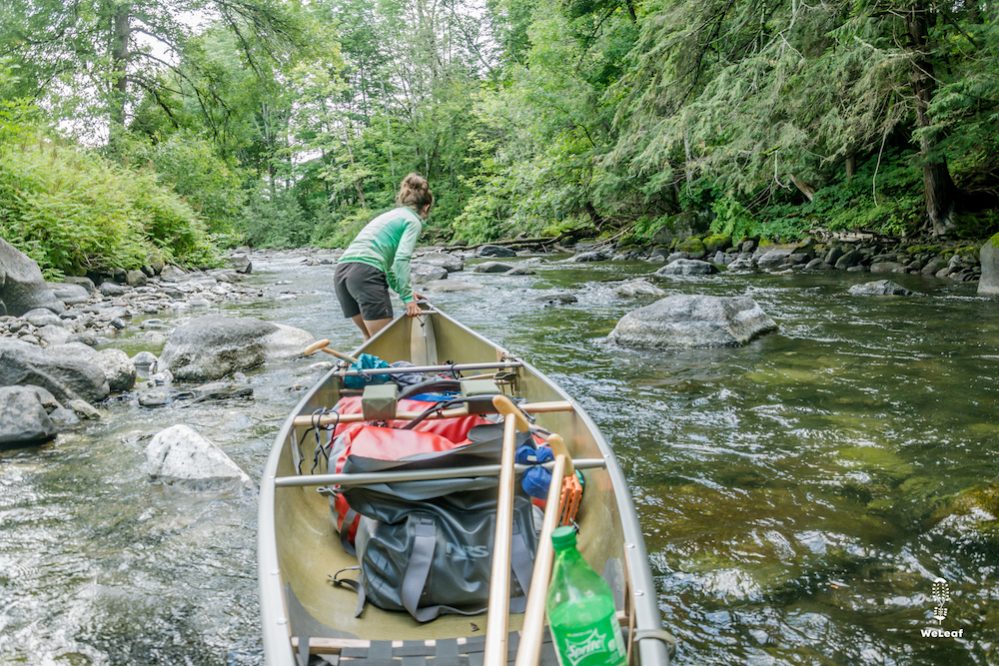
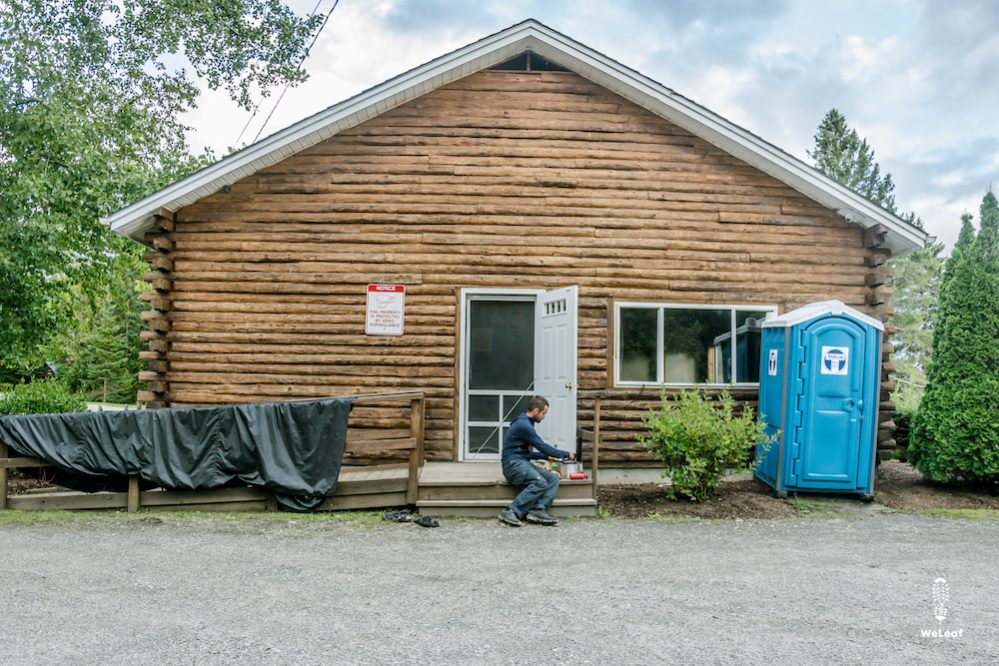
It rains all night and they invite us to stay, but the next morning we continue. We have an appointment in a few days and there are some tough days coming up. The Clyde river is known for its "slippery, ankle breaking stones". A heavy thunderstorm starts and we look for shelter from the water, under the trees. When the rain falls on us, Zoë believes it is a good idea to pitch the tent and stay her for a day. She doesn't have the right energy to stumble through the river in the rain and, moreover, we may learn to slow down. Olivier doesn't agree. "We have just had a day off and what do I have to do in a tent all day". He prefers to wait until the rain is over to continue. We slide some snappy words back and forth and finally let the sun decide that we continue. This part of the Clyde river is a succession of rapids that we have to follow upstream, there is very little water in the river and we can only paddle a few hundred meters from time to time. It takes us six hours to do nine kilometers and we are tired. But we receive two presents for our hard work. A beautiful deer with large antlers looks at us and then runs away. Not much later we are sheltered from the wind, in the clubhouse of a park, and have a dry place as a reward for the hard work of the day.
